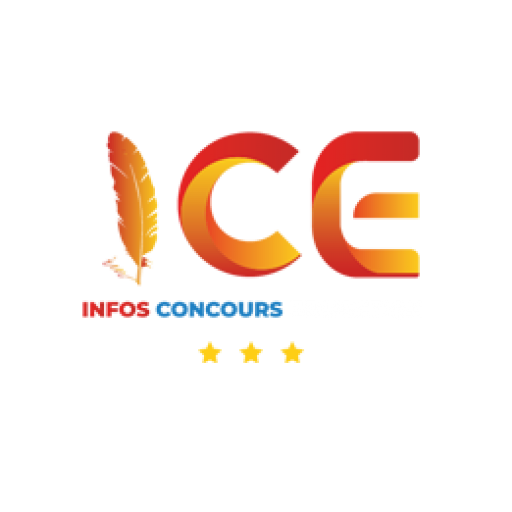Western and Central Africa (AFW) Region – Driving Innovation and Development in Sub-Saharan Africa
At the forefront of Africa’s growth, we are seeking top talent to drive innovation across Sub-Saharan Africa, a region rich with potential and opportunity. With a young, dynamic population of nearly 1.2 billion, Africa is becoming a global hub for market growth and innovation. However, challenges such as education gaps, health disparities, skill shortages, conflict, food insecurity, and the effects of climate change hinder progress, leaving the continent at just 40% of its estimated potential.
In Western and Central Africa, the World Bank is a pivotal partner, managing over 387 projects valued at $44.1 billion across sectors such as agriculture, energy, education, health, water, and sanitation. These efforts aim to create jobs, reduce poverty, promote gender equality, and improve the quality of life. The Bank’s involvement in Africa has nearly doubled in the past decade, reflecting the critical need for sustained growth as projections suggest 87% of the world’s extreme poor will reside in Sub-Saharan Africa by 2030. Join our dedicated, diverse team to drive this mission forward, impact lives, and foster regional development.
West and Central Africa Transport Unit (IAWT3)
The Africa Transport Program manages a diverse and growing portfolio of 54 projects, valued at $8.9 billion, across fragile states, middle-income countries, and low-income nations. This portfolio expands yearly, adding 5-10 new projects and closing a slightly smaller number. IDA20’s record replenishment, a focus on gender equality, private sector involvement, and climate resilience are increasing the scale and diversity of the portfolio.
In the IAWT3 unit, we work across eight client countries, including Gabon, Ghana, Nigeria, Central African Republic, and Sierra Leone. Key areas of focus include rural transport to enhance agricultural productivity, urban mobility solutions such as Bus Rapid Transit systems, regional trade corridors to reduce logistics costs, and road safety initiatives to address high traffic fatality rates. We also prioritize connectivity through investments in ports, railways, and air transport, while incorporating PPPs to improve infrastructure efficiency.
Currently, the IAWT3 unit manages 10 projects valued at $1.5 billion, with an additional pipeline of seven projects and multiple analytical activities. The portfolio covers a broad range of transport and trade facilitation, urban mobility, port, road, and railway sectors, as well as climate resilience and human capital initiatives.
We are looking for a skilled Transport Specialist to join our Brazzaville, Republic of Congo office. This role will require strong technical expertise in the transport sector, direct project management experience—preferably in Africa—and a commitment to engage in technical dialogues with Congolese and other regional authorities. The Specialist will also support ongoing and future transport projects, contributing to development and innovation in Sub-Saharan Africa.
For more information, visit: Western and Central Africa Region – World Bank
Transport Specialist Position – Brazzaville, Republic of Congo
The World Bank is seeking a Transport Specialist for a two-year, renewable appointment at its Brazzaville office in the Republic of Congo. Reporting to the IAWT3 Practice Manager for Transport, the Specialist will play a key role in supporting transport sector initiatives across the Congo Republic and other countries within the Cameroon Country Management Unit (CMU). The primary focus areas will include road connectivity, urban mobility, and regional trade.
Key Responsibilities:
- Project Preparation and Supervision:
- Serve as a team member and transport sector specialist, contributing to the design, implementation, and supervision of transport projects in the Republic of Congo and neighboring countries.
- Ensure technical quality across areas like project design, procurement, contract management, and project monitoring.
- Address cross-cutting concerns such as climate resilience, gender equality, social and environmental safeguards, and the role of the private sector in transport infrastructure financing and service provision.
- Technical Dialogue:
- Support ongoing dialogue with the Congolese authorities and regional governments on transport sector development, with a focus on improving road connectivity, urban mobility, and rural access.
- Contribute to the preparation of new projects, particularly those focused on road safety, transport management, rural connectivity, and regional trade initiatives.
- Analytical and Knowledge Contributions:
- Participate in analytical studies and Trust Fund activities, with an emphasis on the provision and management of transport infrastructure, financing options, urban mobility, and climate resilience.
- Collaborate on best practices in project design, management, and delivery, ensuring sustainability and efficiency.
- Sector Policy Dialogue and Capacity Building:
- Assist in sector policy discussions, institutional reforms, and capacity-building programs aimed at improving the capabilities of implementing entities within the transport sector.
- Promote the integration of private sector involvement, digitalization of transport services, and address social, environmental, and health-related issues, including climate change impacts.
- Cross-Sectoral Collaboration:
- Engage with cross-sectoral teams to contribute to policy notes, public expenditure reviews, and sector studies, focusing on transport, logistics, trade, and competitiveness.
- Support the development of innovative solutions and knowledge sharing across global transport practice networks, participating in Global Solutions Groups and drafting technical notes.
- Stay Updated on Global Trends:
- Maintain expertise in global transport sector trends, particularly in areas of specialization relevant to this role, to ensure best practices are applied to project design and policy development.
Required Skills and Experience:
- Strong technical expertise in the transport sector, with experience in project management, preferably in Africa.
- Familiarity with climate resilience, gender dimensions, and private sector involvement in transport infrastructure.
- Ability to manage complex projects and engage with a variety of stakeholders, including government authorities, private sector entities, and regional partners.




